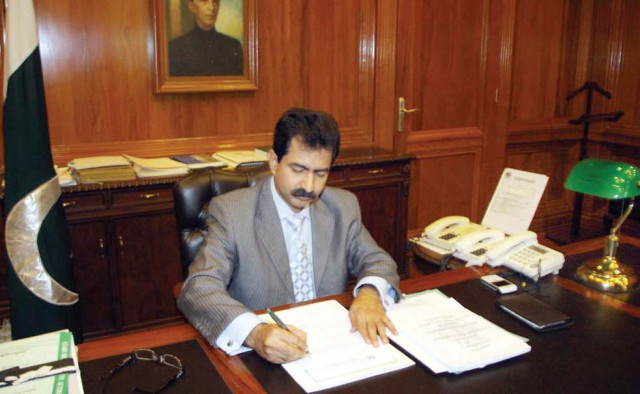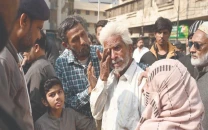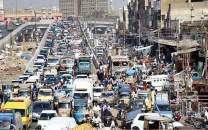Musical chairs: Commissioners, deputy commissioners return
Sindh reverts to the 1979 municipal system once again.

The decision came after a series of notifications was issued once again to do away with the local government system introduced and implemented by the military regime of Pervez Musharraf in 2001.
These notifications were simply meant to implement legislation adopted by the Sindh Assembly on July 13 that wrapped up decade-long system by reintroducing the municipal set-up of 1979 along with the commissionerate system.
Now, Sindh has again been divided into five divisions - Karachi, Hyderababd, Sukkur, Larkana and Mirpurkhas - each to be headed by a commissioner. Besides, there will be 27 districts to be headed by deputy commissioners. Separate notifications were issued ordering the appointment of commissioners, deputy commissioners and assistant commissioners.
While Karachi regained its old status with five districts - Malir, East, West, South and Central - Hyderabad was left divided as Tando Mohammad Khan, Tando Allahyar and Matiari districts.
With the restoration of 1979 municipal set-up, the Karachi Metropolitan Corporation was also revived, along with five district municipal corporations and a district council. Similar will be the case in other cities of the province. The government also notified the postings of administrators for these municipal bodies.
However, some confusion prevailed about the status of the urban development bodies like the Karachi and Hyderabad development authorities. When asked about this anomaly, Local Government Secretary Ali Ahmad Lund told The Express Tribune that there were some legal issues involved in this case. “We cannot revive the old position of these authorities just by issuing a notification. It can only be done through legislation in the provincial assembly,” he said.
Talking to The Express Tribune, Mohammad Hussain Syed, who was working as the administrator of the city government, said, “I will continue to work as administrator of the Karachi Metropolitan Corporation and will have the status of a mayor.” He said that defunct district municipal corporations have also been restored, but the government has yet to appoint administrators there.
All the District Coordination Officers working at the division level have been appointed as commissioners and the DCOs working at the district level have taken over as deputy commissioners of their respective districts.
Roshan Shaikh has been appointed the Commissioner for Karachi. Jamal Qazi, Matanat Ali Khan, Shaukat Jokhio, Qazi Jan Muhammad and Ghanhwar Leghari have been posted as deputy commissioners in five districts of Karachi.
There was some panic among the city government employees immediately after the accounts were frozen. An official source said, “only salaries of employees will be released.”
Muhammad Hussain Syed told The Express Tribune, that the entire budget would now be surrendered to the provincial government account (treasury) until the proper re-establishment of district council and town committees. He said that the funds would also be re-allocated after completing the process.
Sindh had in fact descended into administrative anarchy last Friday with its district governments, town administrations and union councils working without any legal and constitutional cover since then.
An ordinance that imposed the local government system of 2001 died its natural death on November 4, amid confusion that it has automatically activated a bill adopted by the Sindh Assembly in July reviving and implementing the local government and commissionerate system of 1979.
Published in The Express Tribune, November 11th, 2011.



















COMMENTS
Comments are moderated and generally will be posted if they are on-topic and not abusive.
For more information, please see our Comments FAQ